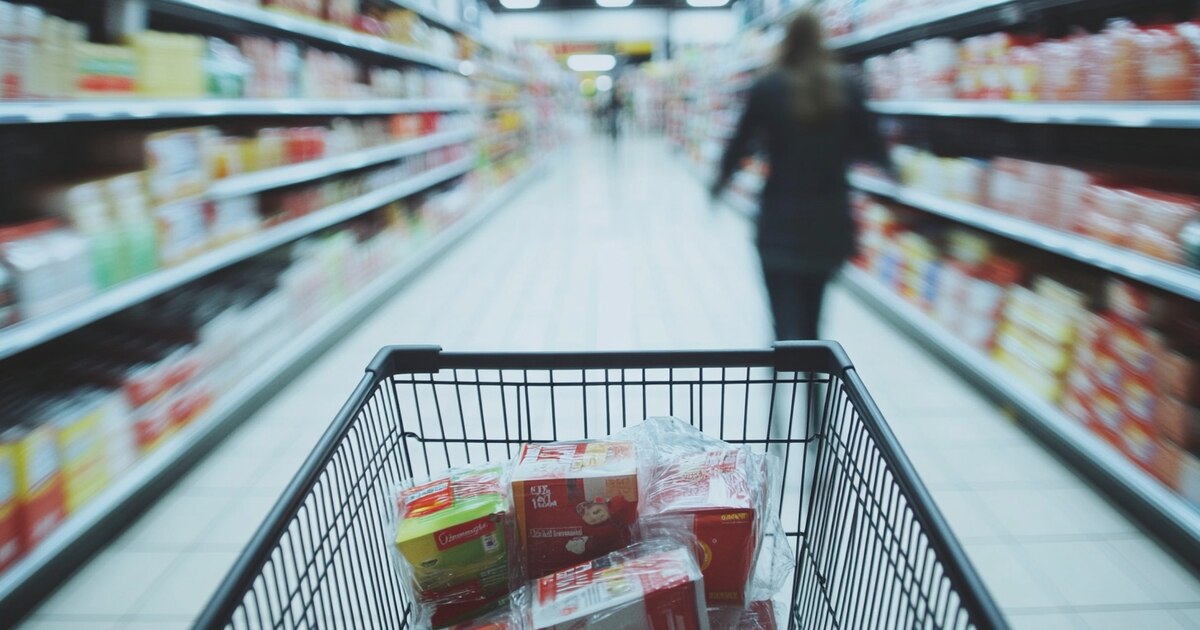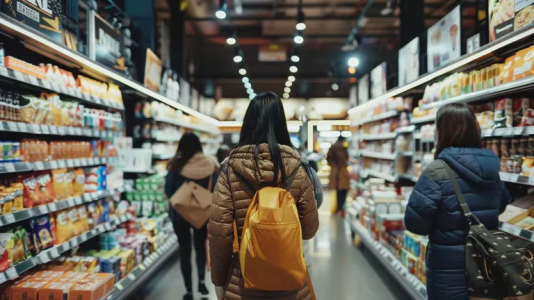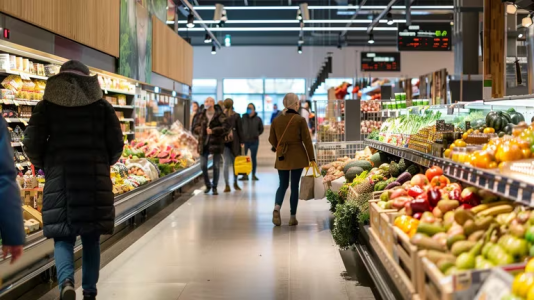All the Answers
Well-known member
What will happen to food prices after the reduction of the PAIS tax: in which areas will there be a greater impact? - Infobae

Source:

Qué pasará con los precios de los alimentos tras la baja del impuesto PAIS: en cuáles habrá mayor impacto
El lunes bajará de 17.5% a 7,5% el tributo y el Gobierno espera que tenga un claro impacto en las góndolas. El ministro de Economía, Luis Caputo, se los pidió a proveedores y supermercados. Dudas en las empresas. ¿Crecerán más los importados?
August 30, 2024
On Monday, the tax will be reduced from 17.5% to 7.5% and the Government hopes that it will have a clear impact on the shelves. The Minister of Economy, Luis Caputo, asked suppliers and supermarkets to do so. Doubts in companies. Will imports grow more?
By Natalia Donato

(Illustrative Image Infobae)
Starting on Monday, when the PAIS tax is lowered by ten percentage points (from 17.5% to 7.5%), the Government will begin to look closely at whether, in fact, over the course of the weeks, this reduction is beginning to be reflected in prices . Although the increase in this tax was applied temporarily - in fact, it should be completely eliminated in January - the decision to lower it now aims to generate a strong reduction in costs and that this contributes to reducing the final values of the products. In the case of food, the Government had already taken measures a few months ago to facilitate imports and that this would generate greater competition locally and, therefore, lower prices. Now, the decision is to lower the tax on all goods, so a greater impact could be expected. What do the supplier companies say? And the supermarkets?
Specifically, the measure taken months ago aimed to reduce the payment period for imports and suspend, for a period of 120 days, the collection of additional VAT and income tax for some 3,000 tariff items of raw materials, but mainly final goods. At that time, the idea was to get local companies to reduce their lists of increases, given the threat that supermarkets could go to foreign markets to look for new suppliers. The objective was achieved, but the shelves were not flooded with imported products, since in many cases local prices remained more competitive and, on the other hand, these are processes that take time, the chains had stated.
With the decision to reduce the tax on all inputs and final goods starting on Monday, food companies will begin to review, according to their cost structure, how much impact the inputs from abroad have and whether or not they can transfer something to the consumer. In principle, according to sources from several companies, there would not be much impact. Where a more direct decrease could be reflected is in products that are purely imported .
“It will have a stronger impact on what is directly imported by each chain than on what is bought in the domestic market, due to a logical question of incidence. For example, in products that are bought abroad, such as bananas, avocados, coffee, some flour, some bread, baked goods and cookies, there is a full impact. In what we buy domestically, the impact is indirect, depending on the incidence that imported inputs and raw materials have on the final product,” said a national supermarket chain.
The source added that if, in a few weeks, this measure of lowering the PAIS tax is added to lower tariffs on inputs, this could also contribute to lowering prices somewhat. “In any case, if direct imports later come in at a more competitive price, it should generate even more pressure on the national product to lower its price,” he said.

The rise in food prices in recent months was below the average inflation, and what boosted the sector the most were fruits and vegetables.
“It will be difficult to adjust prices going forward, especially if international competition increases. But we have already had a year in which we have not had increases in the categories. The margins are becoming very thin,” said the owner of a national food company. Contrary to what the economic team may assume, the supplier companies are not foreseeing, for the moment, a great impact on the final value of their food. “We already have many raw materials without PAIS tax; perhaps it impacts us in the cost structure due to the payment of freight and some spare parts, but that does not have a great impact,” explained the businessman.
“Generally speaking, the reduction of the PAIS tax could affect us in packaging and some inputs, but that, in the cost matrix, is not more than 10% of the total. Therefore, in our production chain I do not see the impact as very significant, maybe 3%, but if you have a 2% devaluation, in practically 2 months the effect is null. Yes, it can be useful for everything that has to do with spare parts, medium-term investments, but more in the medium term,” they said in another food company of basic products. They said the same in another in a similar sector: “The reduction of the PAIS tax is very good news. It helps to improve the costs of raw materials and imported inputs, but I am not sure if that will have an impact on lowering prices. It will certainly help to improve costs and that will allow you to continue to maintain prices.”
Companies acknowledged that the impact will be more noticeable in some products than in others. “For a product like coffee, for example, the weight of the raw material in the price of the final product is very important. In others, an input is capable of being a smaller percentage of the final cost. But whatever it is, it is welcome and useful. It adds a lot. I do not see the expectation that this will have a direct impact on a massive drop in prices. But it could happen in some categories,” said one of the main firms in the sector.
Food prices have been driven in recent months basically by the rise in seasonal products, such as fruit and vegetables. The rest moved in a lower range and the reason is the strong contraction in sales suffered by mass consumption. For September, some companies already sent lists to supermarkets and according to sources in the sector, “the vast majority sent increases below inflation.” “There are few lists and below the CPI. Those who sent increases in line with inflation are already agreeing on promotional investment. In any case, with regard to the reduction of the PAIS tax from Monday, if there are reductions they will begin to be seen in the next 20 days to a month,” said supermarket sources.

